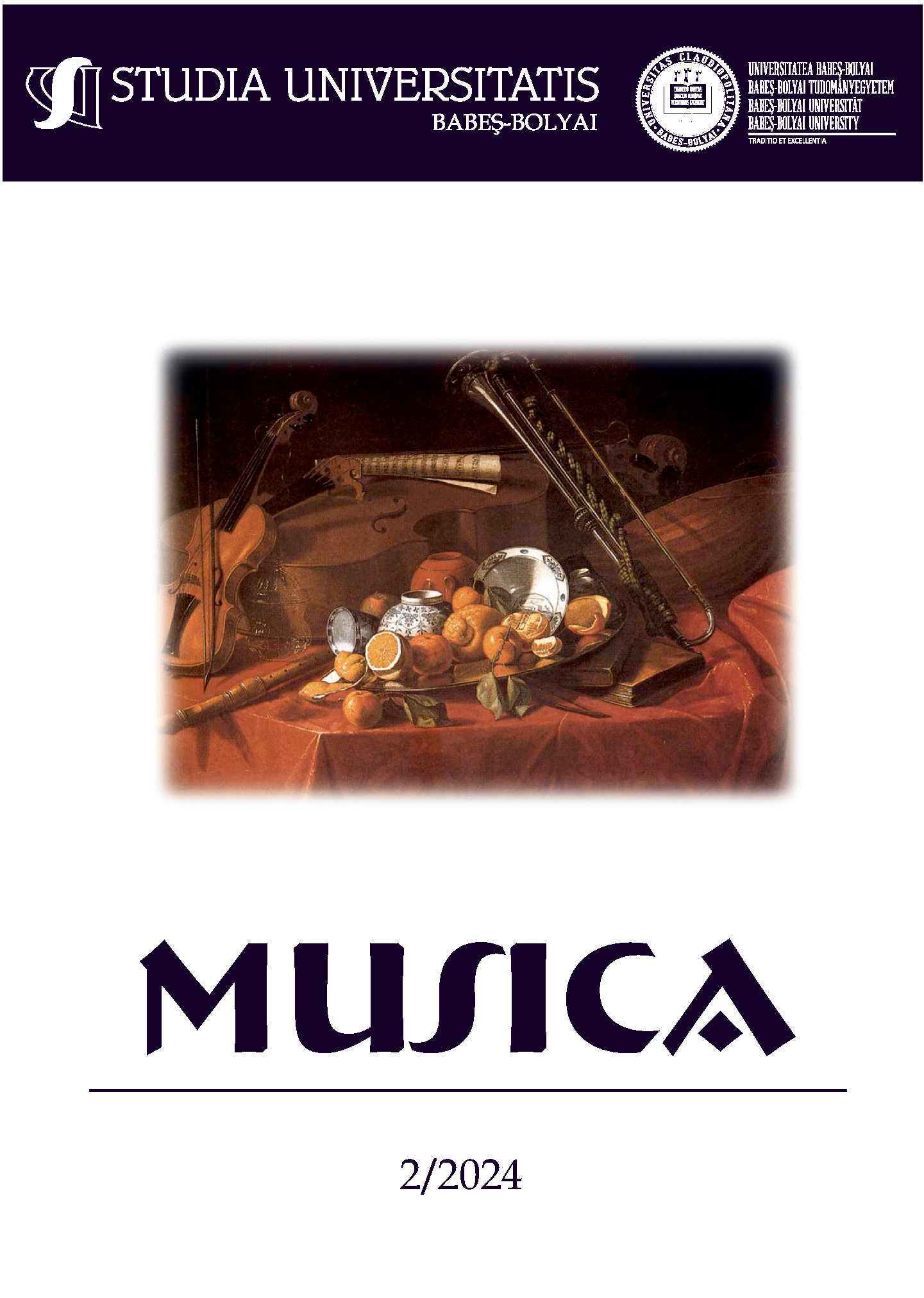BAI JUYI’S POETRY IN GYÖRGY KÓSA’S WORKS
BAI JUYI’S POETRY IN GYÖRGY KÓSA’S WORKS
Author(s): Krisztina SinkaSubject(s): Music
Published by: Studia Universitatis Babes-Bolyai
Keywords: Chinese songs; György Kósa; Bai Juyi’s poetry; Sándor Weöres; performing arts; creative arts; singing voice; Stella Ferch;
Summary/Abstract: The development of the art of song can be linked to German regions. The most intimate of musical genres, it was originally intended to be performed in front of a small audience. The songs were mainly written to poems by contemporary poets, which were read before the music was performed to make it easier to understand. Music on oriental themes appeared in European music from the early 20th century. The first major stage work was a love story set in Japan, which was in fact a 19th-century Italian opera (Giacomo Puccini: Madame Butterfly). Among many other artists, the Hungarian composer György Kósa (1897–1984) was inspired by the culture of the Far East. The poems of Bai Juyi, who lived in the Middle Tang period, reflect, besides social criticism, the all-encompassing happiness of eternal love and the tormenting loneliness arising from love’s painful absence.
Journal: Studia Universitatis Babes-Bolyai - Musica
- Issue Year: 69/2024
- Issue No: 2
- Page Range: 217-226
- Page Count: 10
- Language: English

